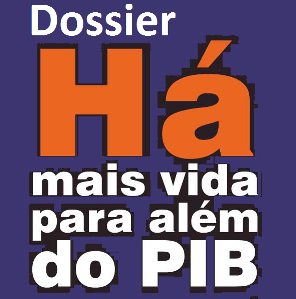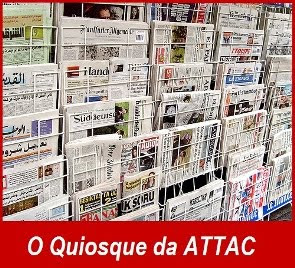Financial Times afirma que a Comissão Europeia está a estudar a Taxa Tobin para financiar orçamento comunitário
Link para a notícia.
The European Union’s executive body is set to propose expanding its revenue-raising powers – including the introduction of EU-wide taxes – in its budget to be unveiled this week.
A tax on financial transactions or activity, a portion of which would be diverted into Brussels’ coffers, is a leading option under consideration by the European Commission, according to officials drafting the budget.
Britain, home to the EU’s biggest financial services industry, has staunchly opposed such a a so-called Tobin tax, named after its originator James Tobin, the liberal US economist.
But officials said the Commission, increasingly dependent on national capitals to meet its €126bn (£112bn) annual spending bill, remained committed to generating its own revenue from 2014.
“The commission will make a proposal in this respect and it will be an ambitious one,” said Andreas Schwarz, a member of the budget commissioner’s cabinet, when asked about expanding the EU’s resources, although he declined to be specific.
In addition to a financial sector tax, other possibilities include levies on airline tickets and siphoning off revenues collected by the EU’s emissions trading system – the cap-and-trade market to reduce greenhouse gas emissions.
Commission officials insist that they will not push for a direct EU tax and any revenue raised by such measures would offset national contributions.
However, the debate over self-funding promises to be one of the most controversial elements of an austerity budget that diplomats broadly agree will otherwise differ from its predecessor only by degree.
Proponents of self-funding argue that expanding the EU’s own resources is essential to detoxify a poisonous budget exercise in which each of the bloc’s 27 member states jockeys to limit its own contributions while maximising their returns.
But opponents deride the concept as an “EU tax” and another creeping loss of national sovereignty. They also view it as a ploy to distract from discussions about ways to rein in EU spending. “This comes up occasionally and it’s not going to happen,” a British Treasury official told the Financial Times.
David Cameron, prime minister, has said he is despatching a “hardened Treasury man”, Sir Jon Cunliffe, to Brussels as his EU ambassador charged with trying to constrain the EU budget.
The EU has long raised its own funds through import duties on sugar and other goods brought into the bloc. But while they accounted for the majority of funding in the 1980s, they are now just a fraction after free trade agreements wiped out such tariffs.
As a result, about 70 per cent of this year’s budget will be covered by direct contributions from member states. That figure exceeds 80 per cent if value added tax – which is collected by member states and then passed on to Brussels – is included.
Mustering support for self-funding will prove a delicate task for José Manuel Barroso, the commission president. He is expected to argue that any new funding sources would mean a reduction in member state contributions to Brussels.
Mr Barroso was careful not to mention the new EU budget when he made the case last week for an EU financial sector tax, which he will propose in the autumn.


+web.jpg)



0 comentários:
Enviar um comentário